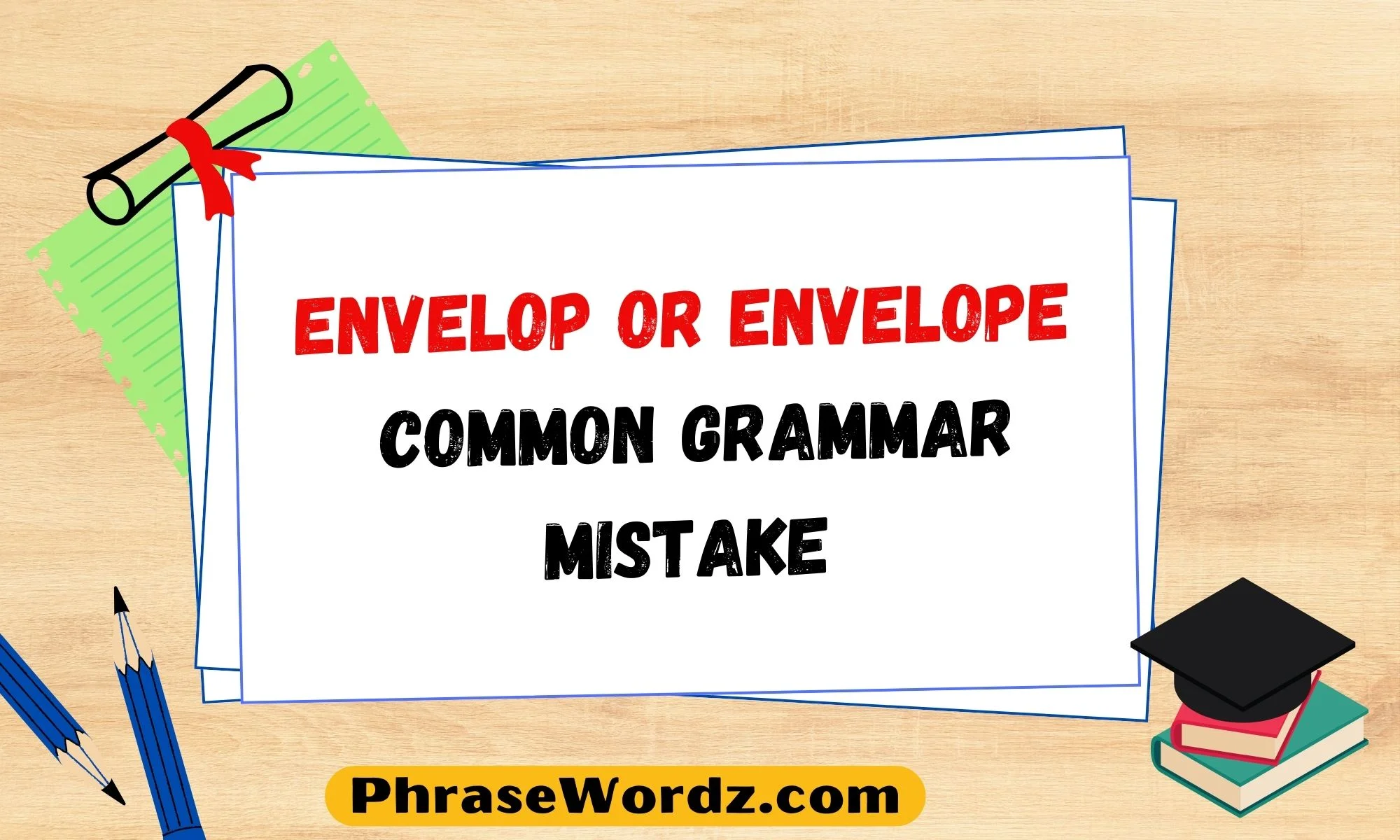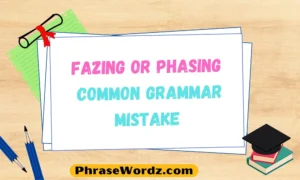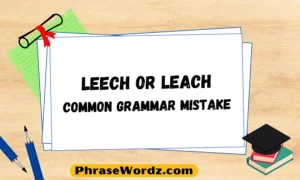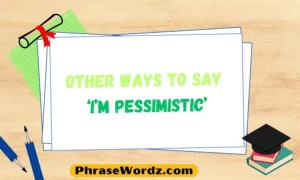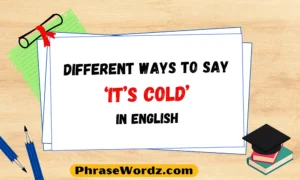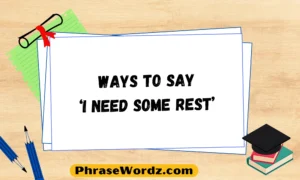The English language is filled with words that sound alike but have different meanings, spellings, and usage. One such pair is “envelop” and “envelope”. These words often confuse even the most seasoned writers and speakers due to their similar pronunciation.
Confused about the difference between “Envelop or Envelope”? Discover their distinct meanings, correct usage, and practical examples to enhance your writing skills and avoid common grammar mistakes with this comprehensive guide!
However, understanding their distinct meanings, parts of speech, and contextual uses can eliminate this common grammatical error. In this article, we will explore the differences, provide real-life scenarios, and offer helpful tips to master their correct usage.
What Does “Envelop” Mean?
The word “envelop” is a verb and means to wrap, cover, or surround something completely. It is commonly used when describing something being enclosed or shrouded.
Example Sentences:
- The fog enveloped the entire valley, making it impossible to see the road ahead.
- She felt a sense of peace enveloping her as she stepped into the serene garden.
What Does “Envelope” Mean?
The word “envelope” is a noun and refers to a flat paper container used to hold letters or documents. It is a tangible object often associated with correspondence.
Example Sentences:
- Darcy handed Elizabeth an envelope sealed with wax.
- The invitation arrived in a beautifully decorated envelope.
Common Mistakes and Why They Happen
The confusion between these two words arises primarily because they sound similar when spoken, especially in casual conversations. Moreover, their spellings differ by only one letter, making them easy to mix up in writing.
Scenario Examples
Scenario 1: Business Email – Correct Use of “Envelop”
Subject: Update on Marketing Campaign
Dear Mr. Johnson,
I hope this email finds you well. As per our last discussion, the branding strategy aims to envelop customers in an engaging narrative that resonates with their experiences.
Should you need further details, please let me know.
Best regards,
Claire Williams
Scenario 2: Formal Letter – Correct Use of “Envelope”
Subject: Submission of Project Proposal
Dear Dr. Benson,
Please find enclosed the project proposal for the upcoming research initiative. The documents are securely placed in the envelope addressed to the review committee.
I appreciate your time and look forward to your feedback.
Sincerely,
James Carter
Differences in Pronunciation
Though both words can sound similar, their pronunciation differs slightly:
- Envelop (verb): /ɪnˈvɛləp/ or /ɛnˈvɛləp/
- Envelope (noun): /ˈɛn.vəˌloʊp/ or /ˈɒn.vəˌloʊp/
The stress is on different syllables, which is key to distinguishing them when speaking.
Tips to Remember the Difference
- Visualize the Action: If you are referring to an action of covering or surrounding, you are likely using “envelop.”
- Think of Mail: If it involves paper and letters, it’s undoubtedly “envelope.”
- Grammar Clue: Pay attention to whether you need a noun or a verb in the sentence.
Fun Mnemonics to Avoid Confusion
- “Envelop” ends with a ‘p,’ which stands for ‘process’ (an action).
- “Envelope” ends with ‘e,’ which stands for ‘enclosure’ (a thing).
Describe Difference Between Envelop and Envelope (in Table)
| Feature | Envelop | Envelope |
|---|---|---|
| Part of Speech | Verb | Noun |
| Meaning | To cover, surround, or wrap something | A paper container for letters |
| Pronunciation | /ɪnˈvɛləp/ or /ɛnˈvɛləp/ | /ˈɛn.vəˌloʊp/ or /ˈɒn.vəˌloʊp/ |
| Example Sentence | “The mist enveloped the forest.” | “I sealed the letter in an envelope.” |
Conclusion
Mastering the correct usage of “envelop” and “envelope” may seem daunting at first, but with practice and attention to context, you can confidently distinguish between these commonly confused words. By remembering their meanings, parts of speech, and usage scenarios, you’ll enhance your writing and communication skills significantly.
